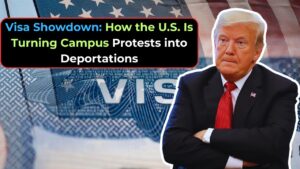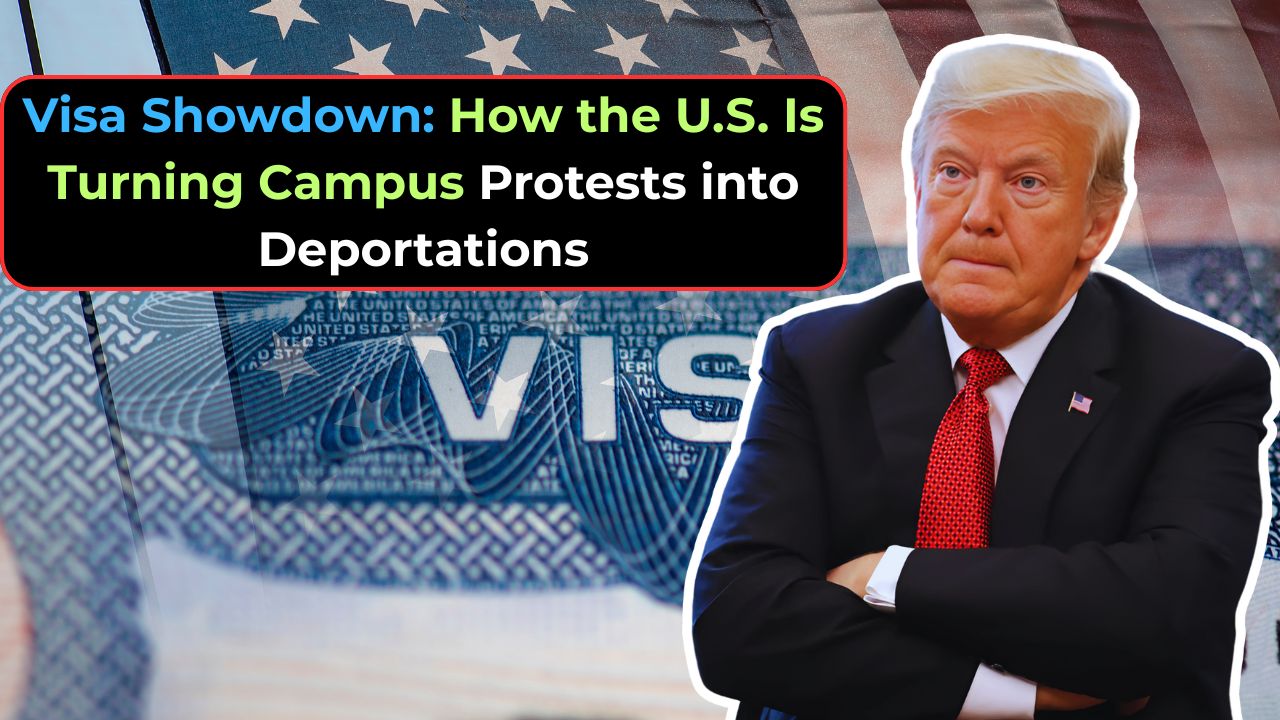Over the past month, the State Department has suddenly canceled over 300 F-1 student visas, raising eyebrows with what some call the toughest clampdown yet on foreign students joining “disruptive” campus protests. Secretary of State Marco Rubio justified the sweep by saying the country must shield itself from threats, adding that visa holders are on U.S. soil mainly to learn, not to rally. Opponents label the crackdown a direct blow to free expression and warn that the damage to U.S. universities could echo for years.

The snap rulings handed the spotlight to a trio of gripping examples. Turkish Fulbright fellow Rumeysa Ozturk found herself surrounded and questioned by masked ICE officials after publishing a sharply worded column about her school’s Israel connections. Mahmoud Khalil, a grad student at Columbia who holds a green card, ended in cuffs after organizing a pro-Palestinian march. Meanwhile, Ranjani Srinivasan, an Indian Ph.D. student, chose to leave the country on her own after her visa was suddenly branded suspect for supposed ties to Hamas. All three are now scrambling to reclaim their student status with little more than a letter of refusal in hand and no warning of the evidence really used against them.
Legal and Constitutional Questions
Section 212(a)(3)(C) of the Immigration and Nationality Act lets the government take away visas if it decides a person’s activities could hurt America’s foreign policy. Experts worry, though, that this power is being used against students who are only speaking their minds. “Due process has been tossed aside,” says Cornell’s immigration law professor Stephen Yale-Loehr. Dozens of lawsuits are expected, and courts may soon have to choose between protecting free speech and keeping some noncitizens out of the country.
Economic Toll on Universities
International students pumped $43.8 billion into America’s economy during the 2023–24 school year, keeping 378,000 jobs running and backing STEM research. Universities use this cash to help pay lower fees for U.S. students. Because applications from abroad are already down 40 percent since the last Trump presidency, admissions offices fear a bigger drop now as students check out Canada, Europe, or Australia.
When colleges talk about campus atmosphere, money isn’t the only worry anymore. A South Asian Ph.D. student at the University of Rochester confided she now skips LGBTQ+ events, worried about the possible fallout. At Princeton, the president called the current climate McCarthy-level censorship, while Columbia, faced with the risk of losing its student visa program, agreed to rules that felt like marching orders. No new international students means empty lecture halls in a few years.
These changes aren’t hitting only the quad. Agencies in India, the biggest origin country for American students, report sharp drops in interest after summer sanctions were announced. NAFSA, a key international education group, states bluntly: the U.S. is in danger of losing its crown as the first-choice country for talent. Legislators, NGOs, and human-rights organizations overseas keep hammering the White House, demanding stability and a return to promise of academic independence.
What happens now is still unclear. Lawsuits are moving slowly through the courts as campus leaders prepare for funding losses and the shuttering of popular majors. A looming travel bar that covers nearly a third of the globe further clouds the future and raises alarm about further quarantining U.S. campuses. Unless the current policy is rolled back, critics claim the country could surrender its lead in groundbreaking research and its once-steady reputation as a welcoming sanctuary for ambitious learners.
